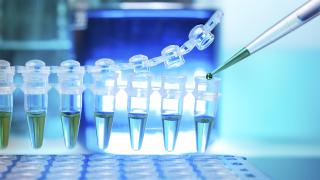A City of Hope phase 1 trial featuring an investigational vaccine that uses a person’s own immune cells, a beta cell protein and vitamin D3 to potentially treat type 1 diabetes is now recruiting patients. The trial is part of The Wanek Family Project for Type 1 Diabetes at City of Hope, which seeks to find cures for the disease.
Known as the PIpepTolDC vaccine, the “inverse” vaccine, which was previously evaluated for safety and feasibility in a clinical trial in the Netherlands, will be tested for the first time in the United States. An inverse vaccine aims to stop certain specific immune responses rather than activate them, as is done, for example, by flu vaccines and COVID-19 vaccines currently being tested.
For the trial, the investigational vaccine will be developed using a patient's own dendritic cells, a type of immune cell. In a City of Hope laboratory, those cells will be cultured and loaded with vitamin D3 and a fragment of pro-insulin to help train the immune system to reduce inflammation. Patients will then receive their modified immune cells via two injections, one month apart.
Although the clinical trial is now open and recruiting patients, due to the COVID-19 pandemic, patients won’t be able to receive the vaccine until the pandemic is under control. In the meantime, patients will be screened for trial eligibility.
The trial — part of the Diabetes & Metabolism Research Institute at City of Hope — is led by clinical principal investigator Ryotaro Nakamura, M.D., a City of Hope professor in the Department of Hematology & Hematopoietic Cell Transplantation, who has many years of experience working with cellular therapies such as bone marrow and stem cell transplants.
“This is a very exciting and novel immunotherapy approach to potentially treat type 1 diabetes, and one that we hope can also lead to future applications in other autoimmune diseases and graft-versus-host disease,” Nakamura said.
The trial is open to adults with type 1 diabetes between the ages of 18 and 45 who were diagnosed with type 1 diabetes in the last one to four years, which means there are many more beta cells to be preserved and protected. Other eligibility and exclusion criteria for the trial can be found here.
In an earlier Netherlands study, nine participants were monitored for six months after receiving the investigational vaccine. No signs of systemic immune suppression or major adverse reactions were seen. Furthermore, beta cell function and overall diabetic control remained stable, and all patients maintained healthy blood sugar levels after treatment.
These patients had been diagnosed with type 1 diabetes for as long as 10 years. Even though these patients no longer produced insulin, or much less than patients with a more recent diagnosis, the vaccine still showed some positive effect.
For the trial, City of Hope will also use a new type of conduit to deliver treatment called microneedles, which are grouped together and applied like a transdermal patch, injecting the immune cells under the skin of patients rather than straight into the blood or muscle. This way, the modulated immune cells directly migrate to the relevant tissue. This novel approach was used in the Netherlands study.
